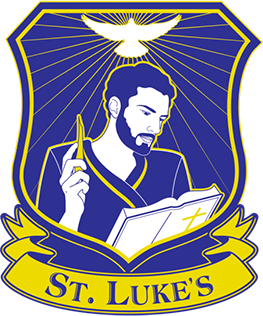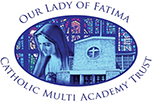Our Learning
Curriculum Statement Overview:
As a community of schools, we believe passionately in a rich education.
John 10:10 “I have come that they may have life and have it to the full.”
We ensure children excel, not just academically but in faith as disciples and as individuals. Our children learn to love themselves, love each other and the world around them and to love God.
TRUST: - Intent:
- Our curriculum’s intent is to create confident and happy children secure in their knowledge of self, with an embedded love of learning. Love of Self
- Our Caritas Curriculum embeds a Caritas theme through a termly focus on Our families & community (Autumn), our individual and community Happiness (Spring) and an aspiration to work for the Common Good (Summer). The Caritas Curriculum has Catholic Social Teaching at its heart and its purpose is to form young children in discipleship and stewardship. Love of Others
- We have developed a Caritas Curriculum that has breadth and ambition, with a particular focus on developing a love of learning. It is designed to give all children, including disadvantaged children, children with SEN and/or disabilities, the knowledge and faith they need to succeed in life by developing their knowledge, skills and abilities to apply what they know and can do with increasing fluency and independence.
The Caritas Curriculum develops a Love of Self, a Love of Others and a Love of God.
TRUST - Implementation:
- Our Caritas Curriculum is coherently planned and sequenced. The curriculum cumulatively builds on knowledge and skills for future learning.
- Our teachers across the Trust have great understanding of the subject they lead and teach. We provide support for those teaching outside their main areas of expertise.
- Our teachers teach the learning required clearly. They check children’s understanding systematically, identify misconceptions accurately and provide clear, direct feedback. In so doing, our teachers respond and adapt their teaching as necessary utilising individualised approaches where appropriate.
- Our Caritas Curriculum is designed to help children to remember long term the content they’ve been taught and to integrate new knowledge into larger ideas.
- We use assessment to help children embed and use knowledge fluently, to check understanding and inform teaching. We understand the limitations of assessment and ensure it is used efficiently to effectively minimise teacher workload
- Through a topic-based approach, our Caritas Curriculum promotes an environment that focuses on developing a love of learning.
- We manage the delivery of the curriculum in a way that doesn’t create unnecessary workload for staff, while maintaining the Trust’s ambitious intentions for the course of study. These materials support the intent of a coherently planned curriculum, sequenced towards cumulatively sufficient knowledge and skills for future learning and employment.
- The Learning is challenging and matches the aims of our ambitious curriculum.
- Reading is at the heart of all we do; each topic has a high quality “Hook with a Book” that inspires and ignites excitement in the learning.
- Reading is prioritised to allow children to access the full curriculum offer. We have a rigorous and sequential approach to the reading curriculum. This develops children’s fluency, confidence and enjoyment in reading. At all stages, reading attainment is assessed and gaps are addressed quickly and effectively for all children.
- Reading books connect closely to the phonics knowledge children are taught when they are learning to read.
- We have a sharp focus on ensuring that younger children gain the phonics knowledge and language comprehension necessary to read. (These are the skills to communicate, which gives them the foundations for future learning.)
- In teaching explicit academic vocabulary and progressive oracy skills, our teachers ensure that their own speaking, listening, writing and reading of English support children in developing their language and vocabulary well.
- Our teaching follows evidence-based pedagogy, all teachers are cognisant of Rosenshine’s Principles, Cognitive Load Theory, Trauma Perceptive Practice (TPP), Generative Learning, Dual Coding, Metacognition and Growth Mindset.
School Level - Impact:
- Our children are confident, and resilient, with a strong sense of responsibility towards their community and the wider world.
- Our children develop detailed knowledge and skills across the curriculum and, as a result, achieve well. This is reflected in our results from in school assessments.
- Our children are ready for the next stage of education. They have the learning discipline, knowledge and skills they need to meet their interests and aspirations.
- Our children with SEN and/or disabilities achieve the best possible outcomes with the resources available to us.
- Our children read widely and often, with fluency and comprehension appropriate to their age.
- They’re able to apply mathematical knowledge, concepts and procedures appropriately for their age.
Our Pedagogy Handbook and curriculum Policy

